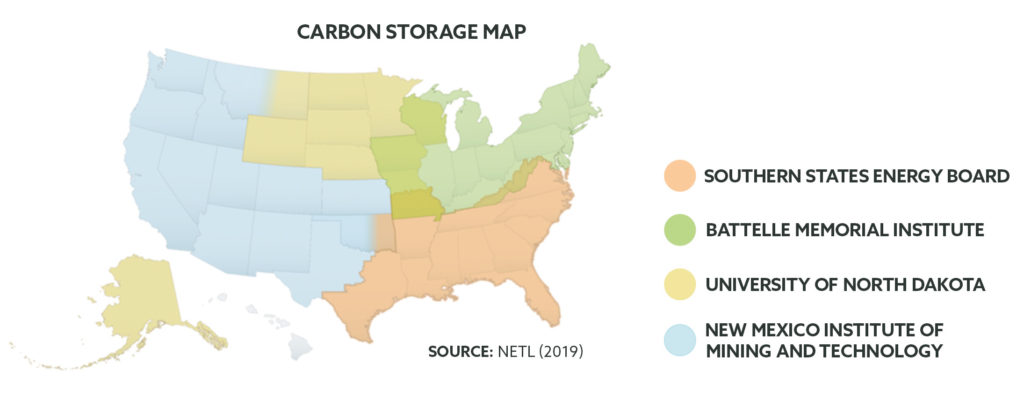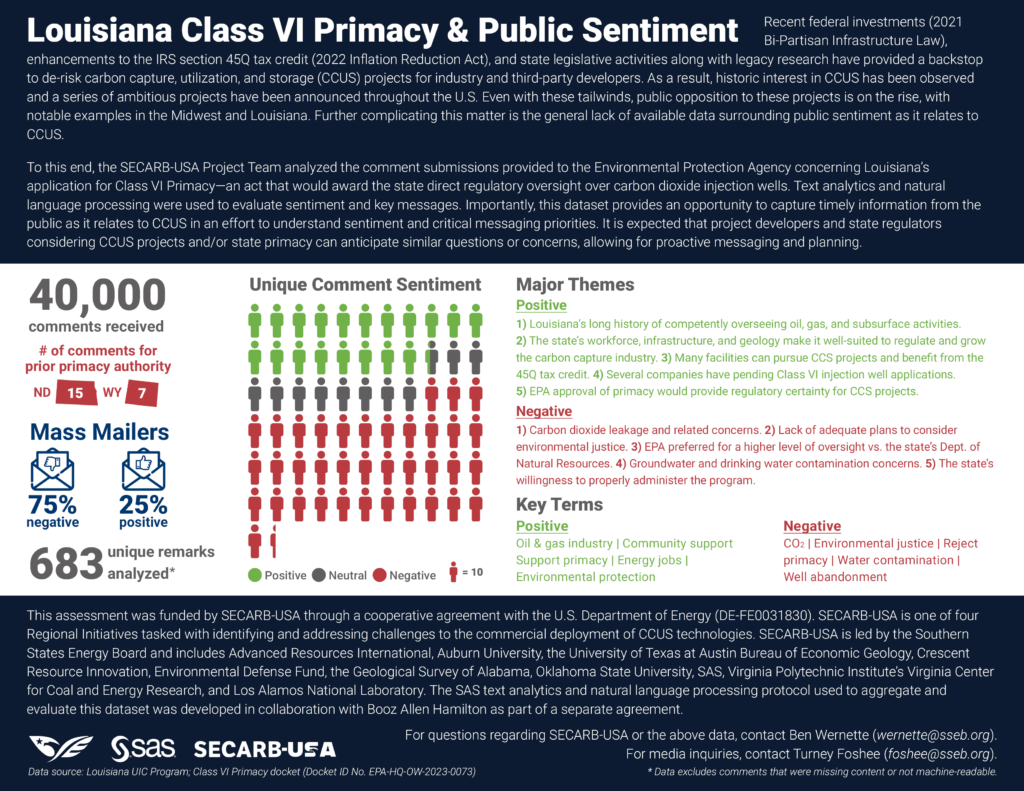The Southern States Energy Board (SSEB) is leading a coalition of technical experts to identify and address regional onshore storage and transport challenges facing commercial deployment of carbon dioxide (CO2) capture, utilization and storage (CCUS) technologies.
The goal of the Southeast Regional CO2 Utilization and Storage Acceleration Partnership (SECARB-USA) project is to help the United States meet its need for secure, affordable, and environmentally sound fossil energy supplies by utilizing the advancements made by the Regional Carbon Sequestration Partnership (RCSP) Initiative to continue to identify and address knowledge gaps.
SSEB and a select network of experienced CCUS project developers and operators will coordinate their capabilities to accelerate CCUS deployment and achieve four primary research objectives:
- Address key technical challenges;
- Facilitate data collection, sharing and analysis;
- Assess transportation and distribution infrastructure; and
- Promote regional technology transfer and dissemination of knowledge.
The SECARB-USA regional initiative encompasses the States of Alabama, Arkansas, Florida, Georgia, Louisiana, Mississippi, North Carolina, South Carolina, Tennessee, Virginia, and portions of Kentucky, Missouri, Oklahoma, Texas, and West Virginia. The Southern States Energy Board is the award recipient.
The Partners will collaborate with DOE and the National Laboratories to accelerate CCUS technology development, to support the National Risk Assessment Partnership (NRAP) initiative and other modeling and simulation efforts that arise, and to participate in a new machine learning initiative. Results and knowledge gained will be archived in the Energy Data eXchange (EDX) database and made available to the public for the benefit of industry and other CCUS stakeholders.
Primacy Sentiment
In December of 2023, SSEB and its partners through SECARB-USA analyzed the public comments submitted in response to Louisiana’s Class VI primacy application to understand current sentiment toward CCS and evaluate opportunities to prioritize messaging moving forward. An infographic summarizing the captured data is available below.
The data above was collected utilizing a text analytics and natural language processing protocol established by SAS Institute. The results of this work will be essential in the development of effective messaging from the broader CCS community, including the CCUS Commercialization Consortium.

Primary Contacts
DOE/NETL Coordinator
Andrea McNemar
Andrea.McNemar@netl.doe.gov
Principal Investigator
Kenneth J. Nemeth
Southern States Energy Board
nemeth@sseb.org
Field Test Partners
Primary Sponsors
- U.S. Department of Energy
- National Energy Technology Laboratory
- Southern States Energy Board
Industrial Partners
- Advanced Resources International, Inc.
- Auburn University
- Bureau of Economic Geology at the University of Texas at Austin
- Crescent Resource Innovation
- Environmental Defense Fund
- Geological Survey of Alabama
- Los Alamos National Laboratory
- Oklahoma State University
- Virginia Center for Coal and Energy Research at the Virginia Polytechnic Institute and State University
Industry Network
- Clean Air Task Force
- Denbury Inc.
- Marathon Petroleum Corp.
- Mitsubishi Heavy Industries America, Inc.
- Repsol
- SAS Institute, Inc.
- Southern Company
- Tennessee Valley Authority
- Titan America


